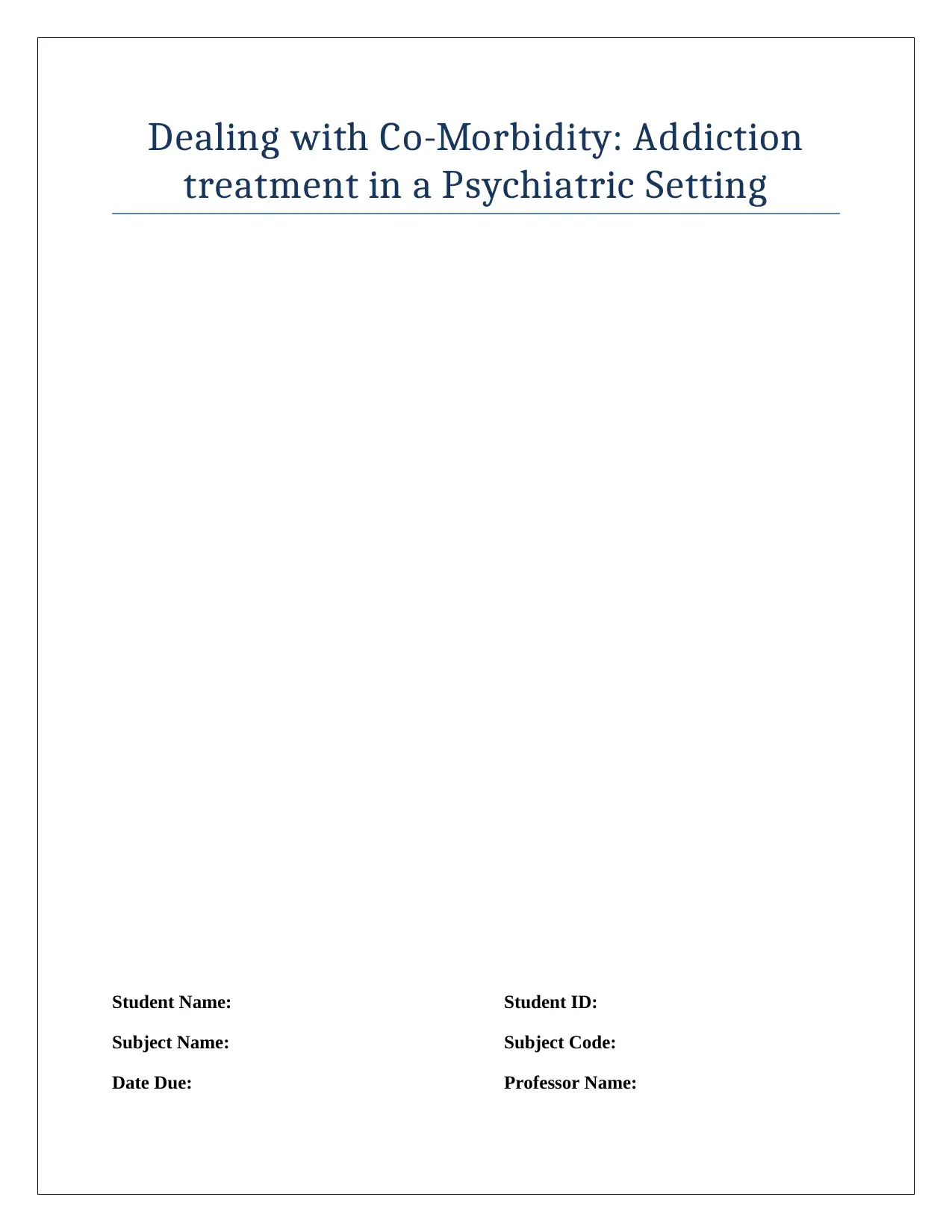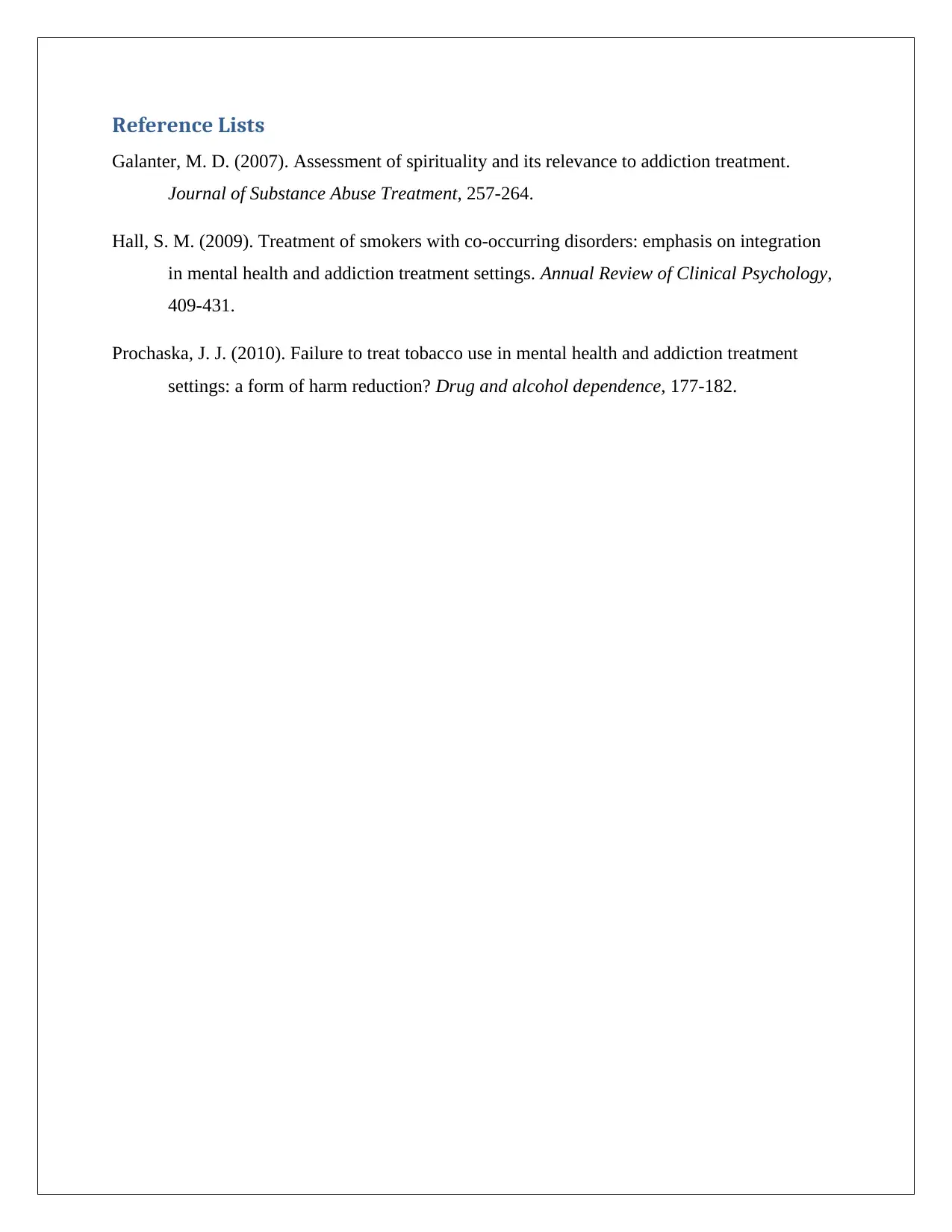Psychiatric Setting Addiction Treatment: Comorbidity Report
VerifiedAdded on 2020/04/07
|3
|370
|418
Report
AI Summary
This report delves into the complexities of treating addiction within a psychiatric setting, with a specific focus on comorbidity. It highlights the challenges posed by the co-occurrence of mental illness and substance abuse, referencing the difficulties in current treatment approaches. The report emphasizes the importance of research in this area, and the need for effective medication treatments. It also mentions the potential of certain medications, such as bupropion, in treating multiple conditions simultaneously. The report also points towards the use of behavioral treatments, either alone or in combination with medications. The report concludes by emphasizing the need for further research to develop more effective treatments for comorbid conditions in addiction treatment. The report is based on the scientific research with references from sources like Galanter (2007), Hall (2009) and Prochaska (2010).
1 out of 3










![[object Object]](/_next/static/media/star-bottom.7253800d.svg)